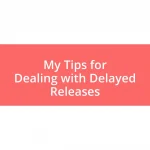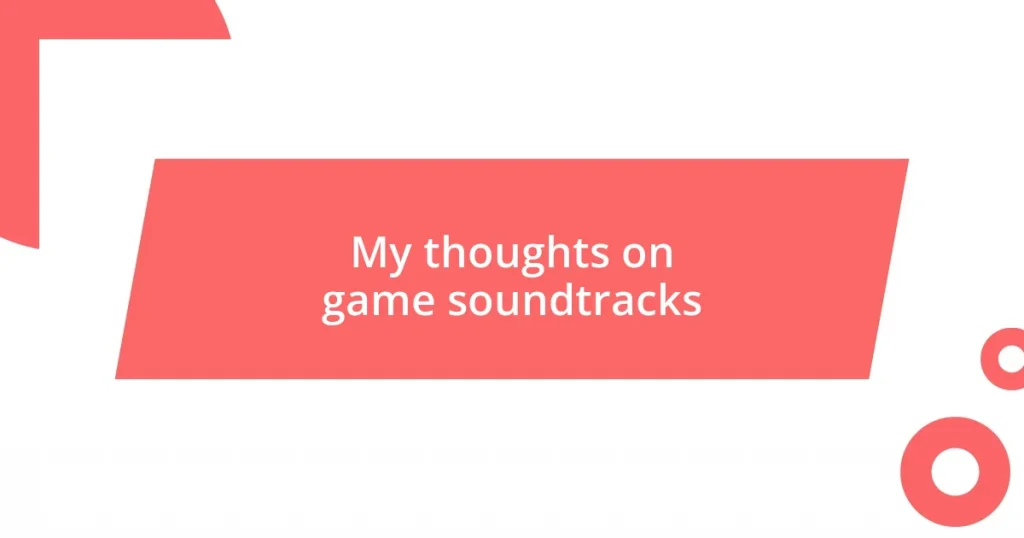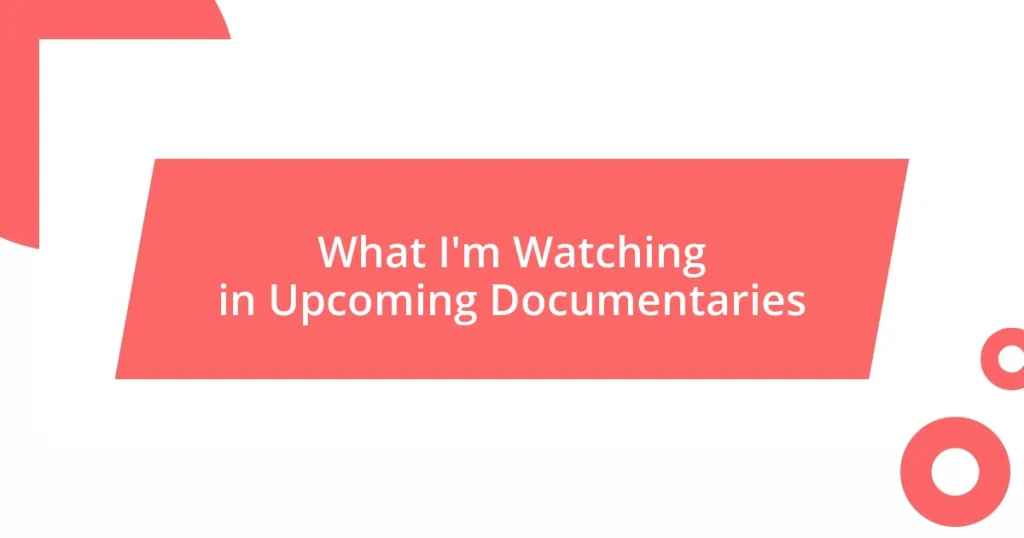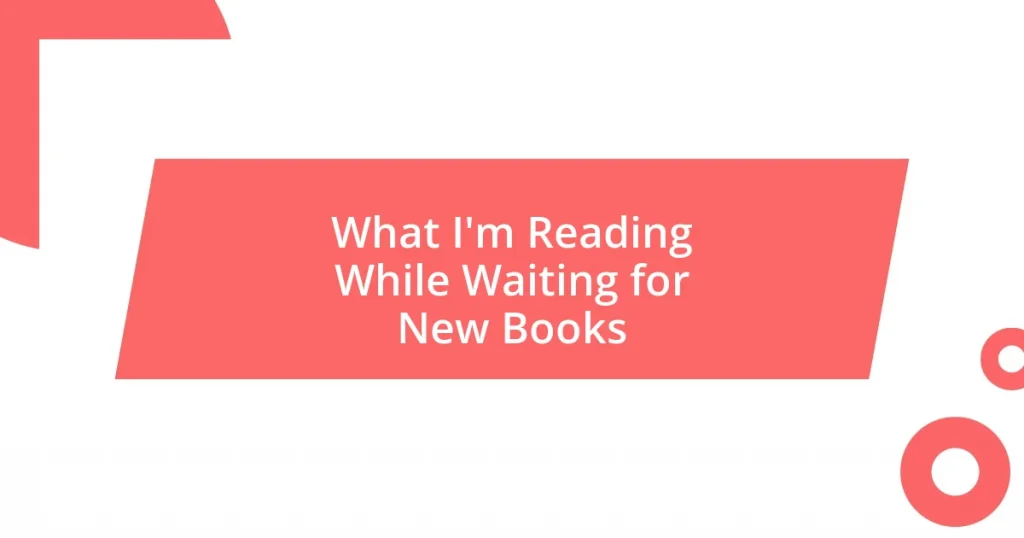Key takeaways:
- Soundtracks significantly enhance the emotional experience of gaming, acting as immersive audio that supports narrative and gameplay.
- Music triggers nostalgia and emotional connections, creating lasting memories tied to specific gameplay moments.
- Curating personalized gaming playlists can elevate the gaming experience by reflecting different moods and emotional journeys through varied soundtracks.
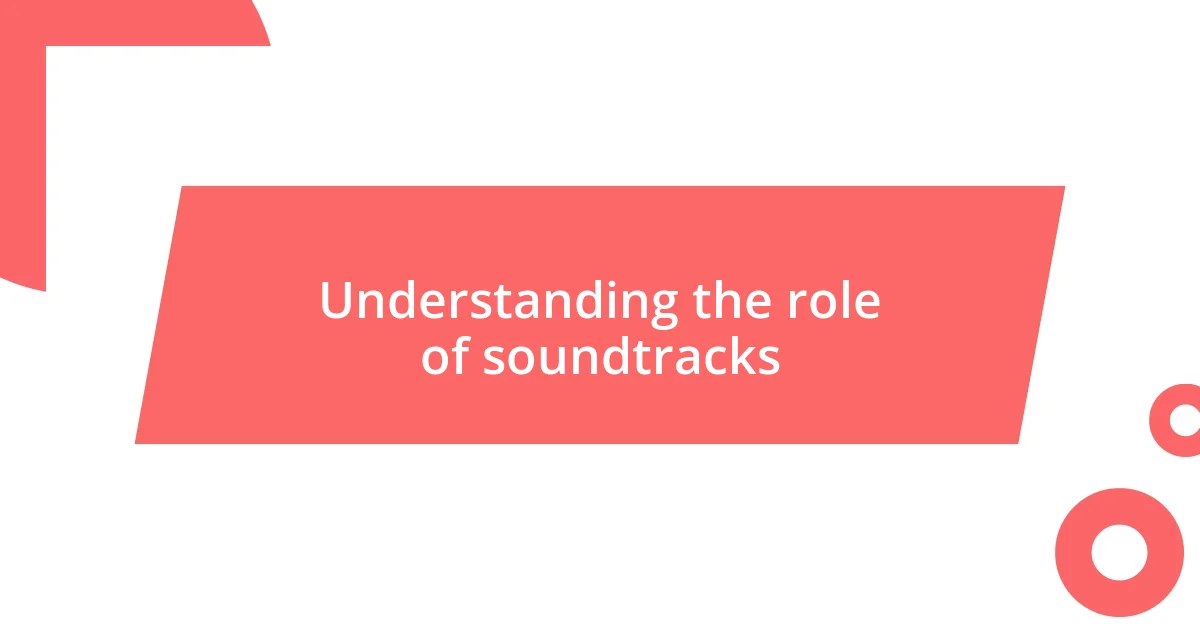
Understanding the role of soundtracks
Soundtracks play a critical role in shaping the emotional landscape of a game. I recall the first time I heard the sweeping orchestral theme in “The Legend of Zelda.” It didn’t just accompany my adventure; it elevated it, pulling me into Hyrule’s grandeur and making every triumph feel monumental.
When I think about soundtracks, I often wonder: how would my gaming experiences change without that audio backdrop? Picture exploring a dark dungeon with only your footsteps echoing; it would feel utterly different, wouldn’t it? The right music can create tension, amplify joy, or even invoke nostalgia.
Moreover, soundtracks can bridge the narrative, acting as a subtle storyteller that complements visuals and gameplay. I remember feeling intense connections with characters driven by their themes, like how Celeste’s motivational score fueled my determination through challenging levels. In essence, soundtracks are more than mere background noise—they are emotional guides that enhance immersion and create lasting memories.
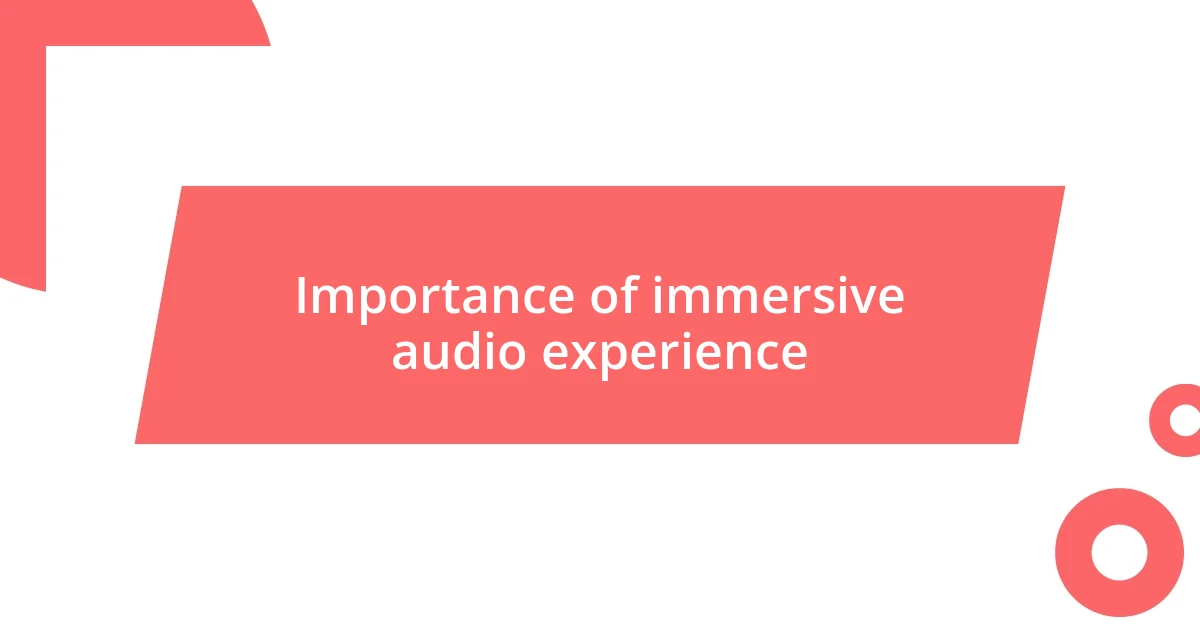
Importance of immersive audio experience
Immersive audio experiences transform gameplay into something magical. I vividly remember the first time I encountered the haunting whispers in “Hellblade: Senua’s Sacrifice.” The audio pulled me deep into Senua’s mind, making me feel the weight of her struggles as if I were walking in her shoes. The sound of distant voices and the dramatic score heightened my anxiety, yet it also tethered me to the narrative, keeping me invested in her journey.
Engaging audio adds depth and richness that visuals alone cannot convey. Consider these key aspects:
- Emotional Resonance: Music triggers emotions. A well-timed motif can spark joy or fear, calling forth memories tied to similar emotions.
- Atmospheric Depth: Soundscapes create an immersive environment, from rustling leaves in a forest to the echoing halls of an ancient castle.
- Narrative Support: Audio cues guide players through story beats, amplifying the significance of key moments—like a crescendo that signals an impending boss fight.
Each sound envelops the player, reinforcing the experience and making every victory and defeat feel profoundly impactful.
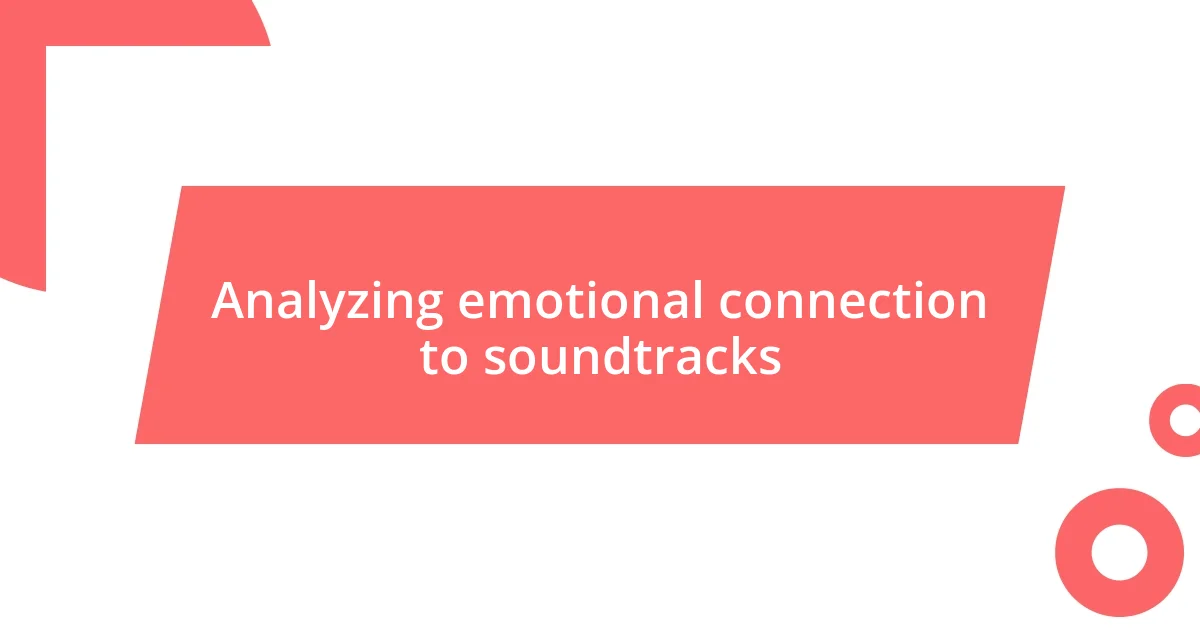
Analyzing emotional connection to soundtracks
When I think about the emotional connection to game soundtracks, I often remember the way certain melodies linger long after the game is over. For instance, after finishing “Final Fantasy VII,” the main theme replayed in my mind, beautifully blending joy and sadness. This intertwining of emotions creates a profound connection, shaping how I perceive not just the game’s story, but also my personal experiences during those moments.
It’s fascinating how specific tracks can transport us to different emotional states. For example, while playing “Journey,” I experienced a sense of wonder and solitude as the soundtrack swelled, perfectly matching the breathtaking visuals. That fusion of sound and emotion turned each moment into a memorable experience, making me feel deeply connected to the game’s world and its unspoken narrative.
In analyzing soundtracks, I often wonder how they act as emotional catalysts. If you think about iconic themes, like the Beethoven-esque score in “God of War,” they evoke specific feelings tied to our gameplay experiences. This isn’t just music; it’s a shared emotional language that resonates with us long after we’ve put down the controller. Each note can trigger a wave of nostalgia, reminding us not just of the game but also of the feelings we had during that journey.
| Aspect | Details |
|---|---|
| Emotional Connection | Melodies that evoke nostalgia and feelings tied to specific gameplay moments enhance personal connections. |
| Environmental Impact | Soundtracks create a rich auditory landscape that amplifies emotional highs and lows within gameplay. |
| Motif Familiarity | Recurring themes instill a sense of familiarity and attachment, transforming the gameplay into a shared emotional experience. |
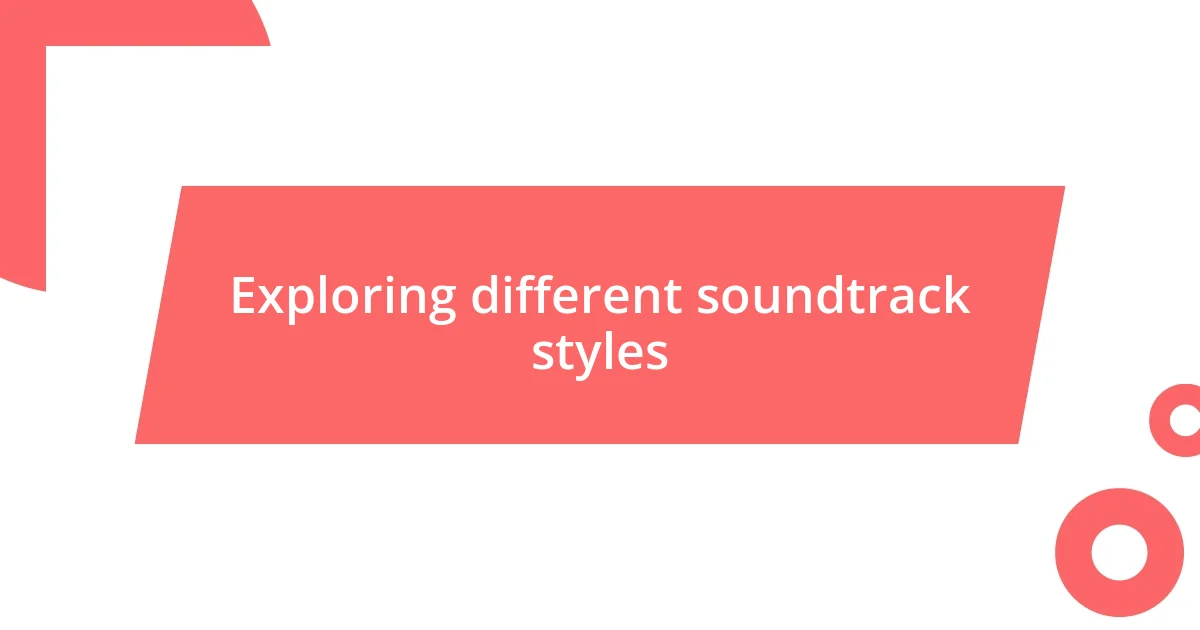
Exploring different soundtrack styles
Exploring the diversity in game soundtrack styles is a captivating journey. For example, the eclectic blend found in “Nier: Automata” captivated me with its fusion of orchestral elements and electronic beats. I remember how the haunting melodies pulled at my heartstrings while the rhythmic undercurrents injected energy into tense moments. It’s a perfect illustration of how blending genres can create a uniquely immersive experience that enhances the gameplay.
In my experience, some soundtracks, like those from the “Celeste,” rely on a simple, yet poignant piano score to evoke feelings of nostalgia and determination. When I first played it, the delicate notes resonated with my personal struggles, transforming challenges in the game into moments of personal reflection. Have you ever noticed how sometimes, music can perfectly encapsulate a feeling you’ve been trying to articulate? These musical elements forge connections that go beyond the screen, reminding us of our own journeys.
Then there are soundtracks that embrace the epic—a style epitomized by series like “The Legend of Zelda.” The grand orchestration and soaring themes transport you to another world, and I often find myself humming the tunes long after a session ends. It’s an experience that connects a community; we share the same themes and stories, deepening our collective nostalgia. Isn’t it fascinating how music can create bonds, not only between the player and the game but also among players themselves?
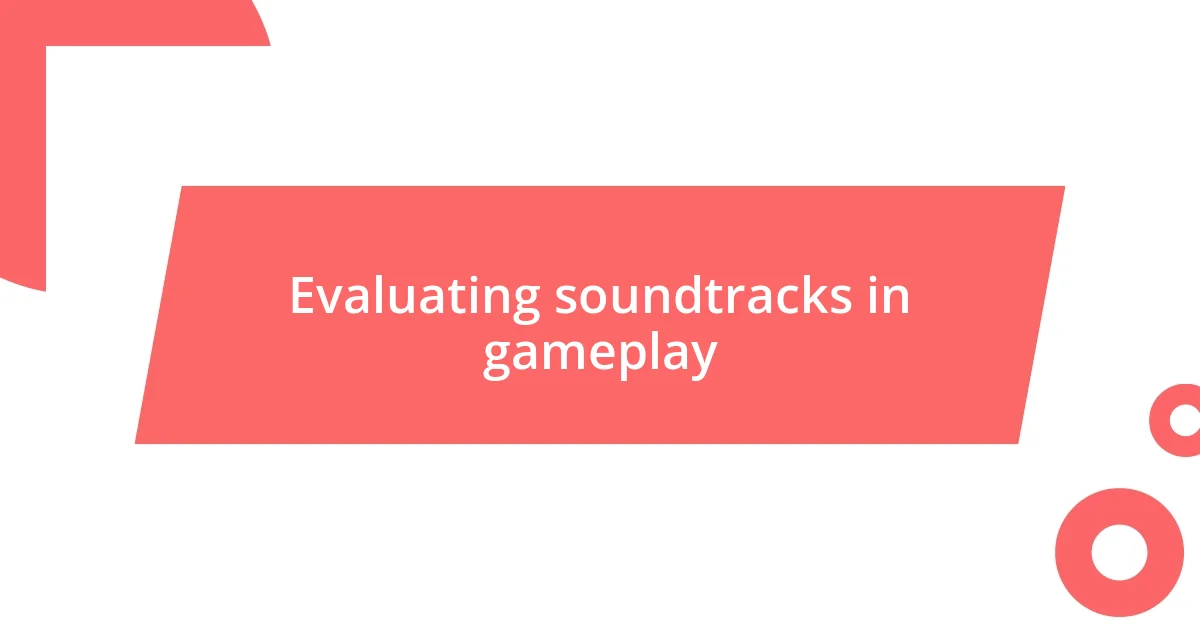
Evaluating soundtracks in gameplay
When evaluating soundtracks in gameplay, I often think about how they influence the pacing and flow of the game. For instance, during my playthrough of “Hollow Knight,” the subtle shifts in music helped me prepare for formidable bosses. The tension built by the score heightened my focus and excitement; it’s like the music was giving me a nudge, reminding me to stay alert.
I’ve also noticed that soundtracks can serve as a storytelling device on their own. In “The Last of Us,” the somber guitar strums and haunting melodies transformed the quiet moments into profound reflections on loss and survival. Have you ever played a game where the music made you pause and think? For me, that’s where a soundtrack shines — it transcends background noise and becomes a part of the story, inviting me to feel something deeper.
Lastly, I can’t help but appreciate how a well-crafted soundtrack can elevate the entire gaming experience. Think about how the explosive tracks in “Doom” match the frenetic energy of gameplay. Each riff and beat injected adrenaline into every encounter, creating an exhilarating synergy between sound and action. It raises an interesting question: how often do we consciously consider music when reflecting on our overall enjoyment of a game? In my view, a soundtrack shouldn’t just accompany gameplay; it should resonate with our emotions and enhance our immersion in the game world.
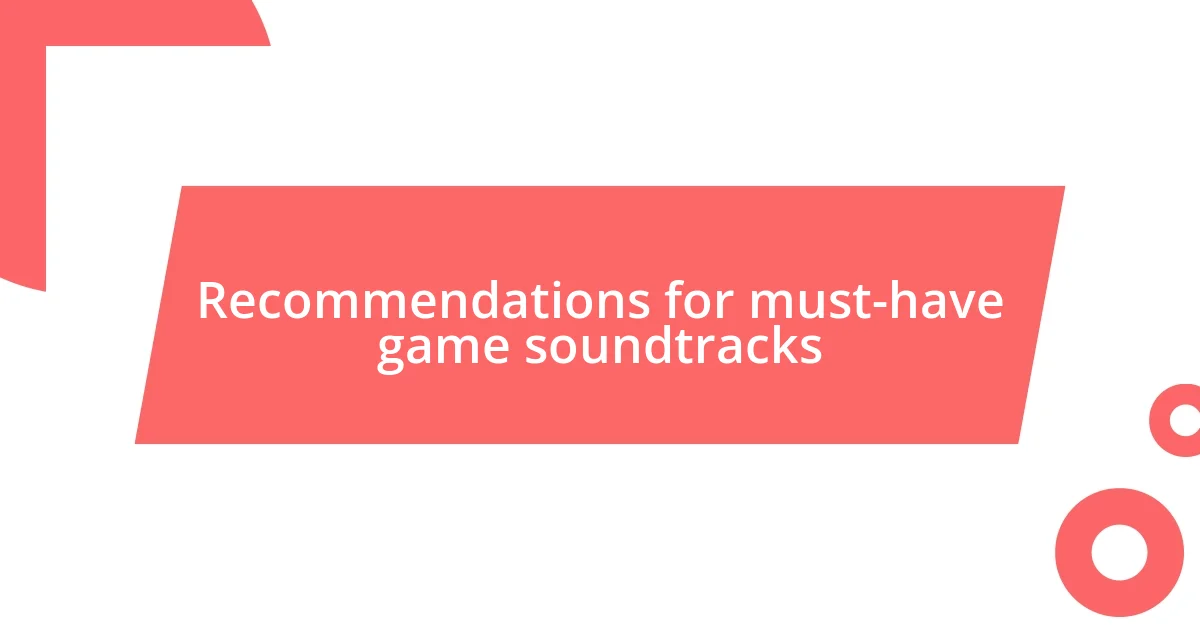
Recommendations for must-have game soundtracks
I can’t help but rave about the soundtrack of “Journey.” The ethereal sounds perfectly complement the game’s stunning visuals, echoing the sense of exploration and solitude I felt while traversing its vast landscapes. Every note seemed to guide my steps, making me ponder the beauty of the journey itself. Have you ever experienced music that felt like it was breathing life into the environment around you? For me, “Journey’s” soundtrack is a shining example of how music can create a profound emotional connection to a game’s narrative.
Another must-have on my list is the score from “Final Fantasy VII.” I still remember the first time I heard “Aerith’s Theme”; it brought tears to my eyes. The melody encapsulates both beauty and sadness, reminding me of the inevitable nature of time and loss. It’s fascinating how a few strings can unsettle my heart. Have you found a piece of music in a game that resonated with you on that level? It’s incredible how these soundtracks can make us reflect on our experiences long after the credits roll.
Lastly, I can’t overlook the impact of the “Halo” series’ soundtrack. The combination of choral elements and orchestral sweeps creates an awe-inspiring atmosphere unlike any other. When I hear those iconic notes, I’m transported back to countless multiplayer battles with friends. There’s something indescribably thrilling about how that music builds anticipation and camaraderie among players. Do you remember a particular game where the soundtrack elevated your excitement? For me, the “Halo” score is not just instrumental; it has become intrinsically tied to memories of shared adventures and triumphs.
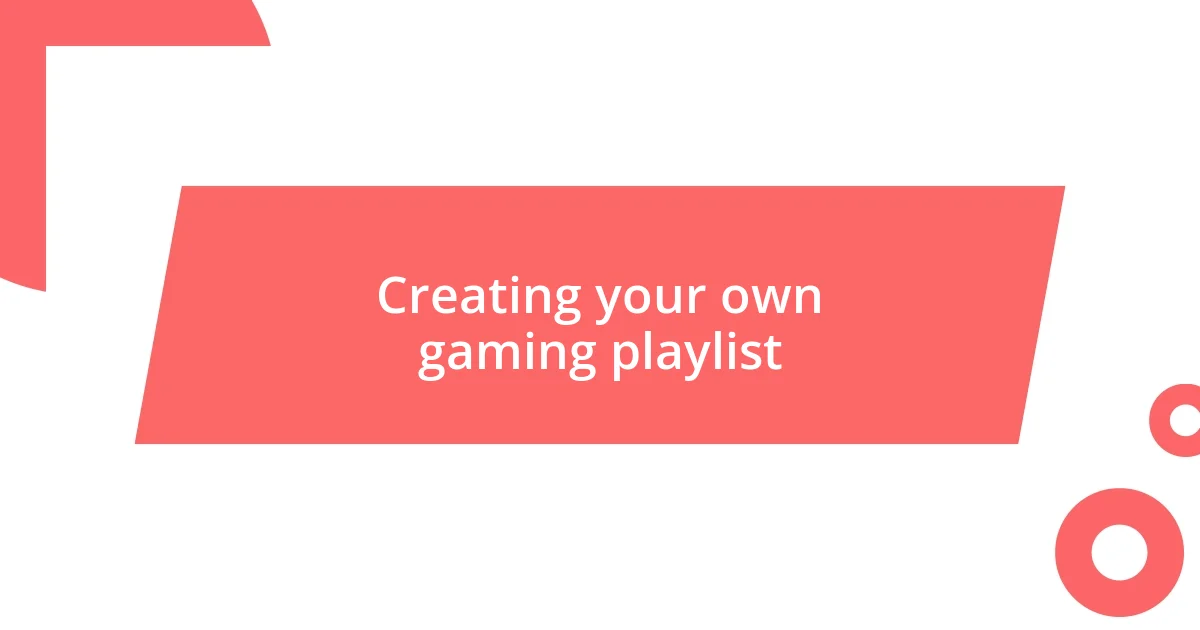
Creating your own gaming playlist
Creating your own gaming playlist is a fun and deeply personal venture. I remember curating a playlist for intense gaming sessions, filled with heart-pounding tracks that kept my adrenaline high. Each selection felt like I was assembling the perfect soundtrack to my own epic quest. As I played, I could feel the music pushing me to perform better, almost as if it were cheering me on in the background.
I often enjoy adding tracks from various genres to reflect the different moods of my gaming experiences. For instance, the ambient sounds from “The Legend of Zelda: Breath of the Wild” can seamlessly blend into the more intense beats from games like “DOOM.” Have you ever tried mixing genres in your playlist? It can create a unique emotional journey, allowing the softer melodies to complement the exhilarating chaos of fast-paced combat.
Experimenting with a thematic approach can also enhance your playlist. I once created a “journey” playlist that gradually built from soft, serene melodies to powerful orchestral pieces, mirroring the storyline of a sprawling RPG. This not only heightened my gaming experience but made each achievement feel monumental. Isn’t it fascinating how we can shape our emotional responses through the music we choose? I believe our playlists can transform the way we engage with games, turning a simple act into an unforgettable experience.






